Pinterest’s looking to advance its in-stream shopping tools, with the addition of several new commerce features, including Product Tagging for Pins, a Shop Tab on Business Profiles and a new ‘API for Shopping’ to facilitate greater connection and integration for merchants.
First off, on product tagging – Pinterest’s adding a new type of product tagging within Pins that will add more specific product details to each item within a frame.
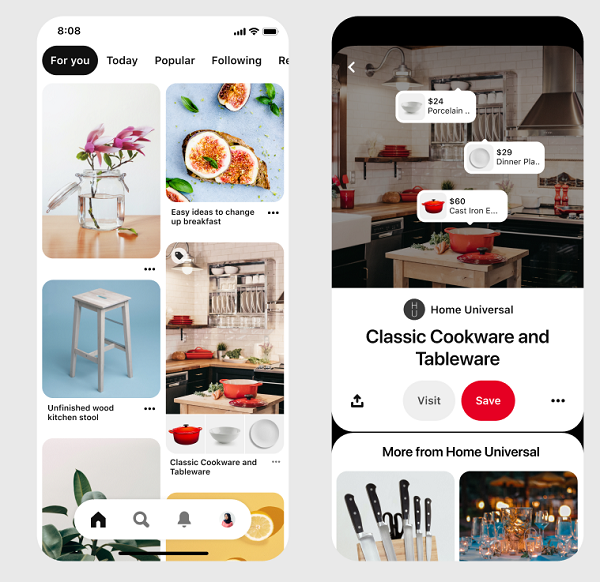
As explained by Pinterest:
“With product tagging, merchants can add products from their catalog to their scene images. Pinners can easily shop for the exact items they love from the inspiring imagery they find.”
So it’s like the product tags you can use now, but linked specifically to products in a merchant’s catalog.
That could make it easier to showcase specific items, and guide users on their path to purchase. Pinterest says that, in initial testing, Pinners showed 70% higher shopping intent on product Pins tagged in scene/brand images than standalone product Pins.
Pinterest’s also adding video as an option in product catalog listings.
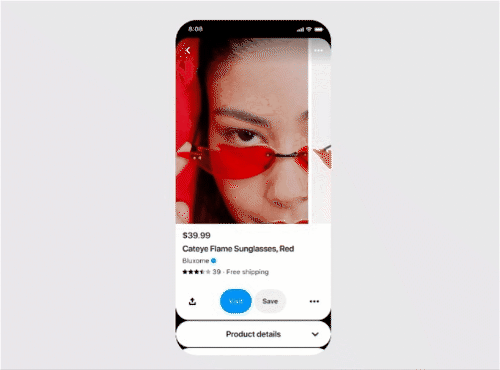
As you can see in this example, the addition will provide more capacity to showcase your products within your Pin display, which could help shoppers to get a better idea of what the product looks like in reality.
Pinterest also added ‘AR Try On for Home Décor’ earlier this year, which uses AR to facilitate similar purpose, in providing more specific insight into how a product looks in real life. Additions like this can better supplement the eCommerce process, providing critical context to assist consumer decisions.
Pinterest’s also adding a new ‘Shop’ tab to business profiles, as another showcase of your brand’s offerings.
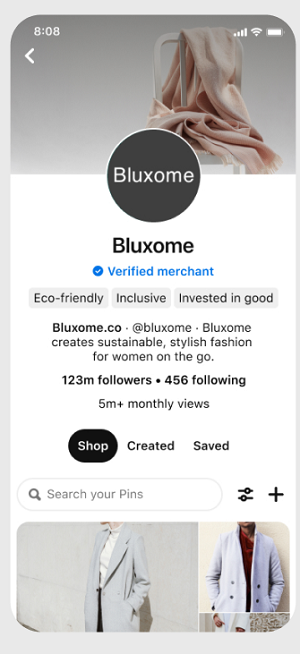
“With the new Shop Tab on Business Profile, merchants can easily display shoppable products to browsing Pinners. This new feature is a high-intent shopping surface, and in fact, 30% of Shopify merchants on Pinterest get their first attributed checkout from their Shop tab.”
So while you’ve long been able to showcase your products in Pins, this provides a dedicated storefront option, which also provides more options in display and presentation of your items in the app.
Finally, Pinterest is also launching its new Pinterest API for Shopping.
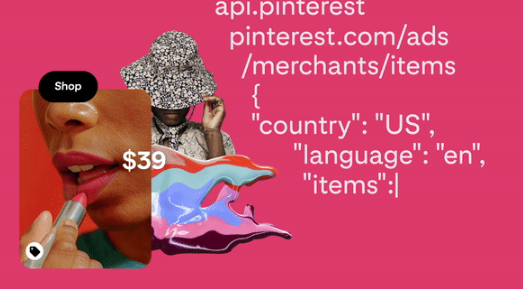
“Pinterest is extending its investments in shopping and measurement features, including catalog and product metadata management, to enable more efficient improved data quality for merchant products. The Pinterest API for Shopping has been shown to lead to a 97% accuracy level for price and availability data.”
The dedicated shopping API will essentially codify connection between Pinterest and retailers, which will make it easier to ensure that the correct product information is being displayed in your product Pins, at all times.
With direct connection between your product database and your Pinterest listings, the process will essentially be automated, meaning that any change in inventory or price will immediately be reflected in your Pins.
Pinterest is working hard to maximize its opportunities, after a year of mixed results in the wake of the pandemic.
Amid the COVID lockdowns, Pinterest saw a huge leap in interest, becoming the replacement shopping mall in many respects, but as physical stores have re-opened, Pin interest has waned, which has seen the platform lose 45 million active users.
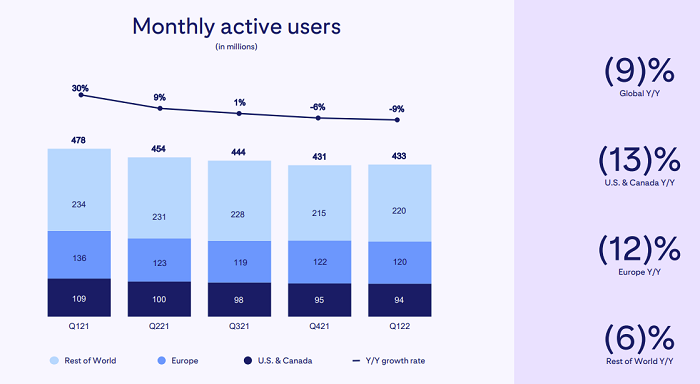
But as you can see, those numbers may now be stabilizing, and with active Pinners coming to the platform with shopping intent, there’s a lot of opportunity in Pins, as a means to connect with potential customers, and tap into search interest in the app.
Shopping additions like this will further enhance that capacity, and could be highly valuable to those looking to maximize their Pin performance.



